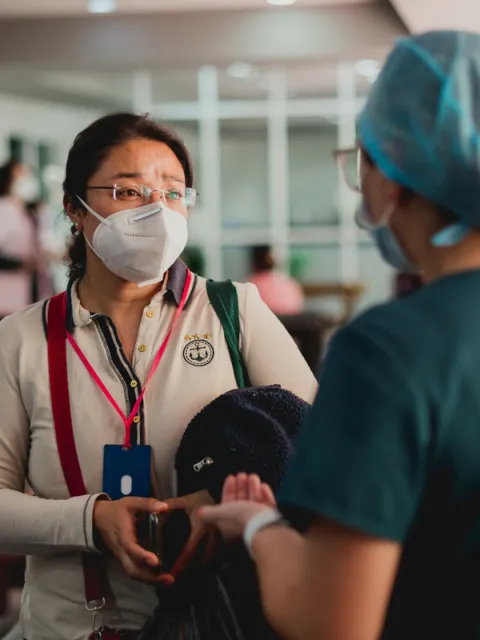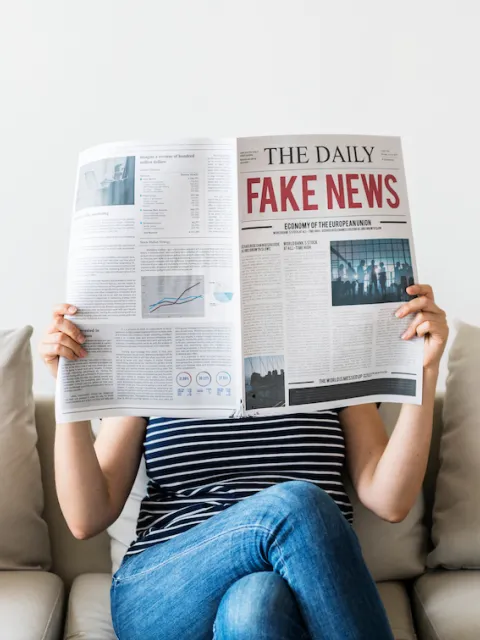Countering medical misinformation
Fake medical news is a serious health threat, particularly for cancer prevention and treatment. Individuals as well as healthcare providers, social media companies, online platforms and governments have critical roles to play to address it.

Healthcare providers have an important role to play in addressing medical misinformation, communicating with patients clearly, effectively and transparently about the risks and benefits of different treatments and the latest research and developments in cancer care.
HIGHLIGHTS
- Medical misinformation risks patient health by promoting ineffective treatments and undermining vaccination efforts.
- Healthcare providers and patient advocacy groups play a crucial role in combating misinformation through transparent, factual communication.
- Regulatory bodies, social media and online platforms must enforce laws, remove false content and promote accurate health information.
In the early 1990s, shark cartilage was widely promoted as a supplement to treat cancer. Its presumed benefits are still marketed today despite the lack of any supporting evidence.
Medical misinformation such as this is a growing threat to patients and their caregivers, inundating them with false and misleading details about cancer treatment, vaccines and other preventive measures.
People who receive a diagnosis for cancer or other serious illness can be vulnerable, feeling understandably doubtful, fearful or even threatened – and looking to maximise their chances of a successful treatment. Unfortunately, there will always be individuals who will prey on that, with social media amplifying their messages.
Merely browsing the internet for information on signs and symptoms, diagnosis and disease, with the intention of better understanding, can lead to encountering misleading and harmful advice.
This can be a serious problem, especially when it comes to cancer treatment. Patients who rely on unproven or ineffective treatments may delay or forego proven therapies, which can lead to disease progression and poorer outcomes.
The promotion of vaccines and other preventive measures as harmful or unnecessary is particularly concerning, when one considers the range of non-communicable diseases that vaccines have effectively eradicated. And since human papillomavirus (HPV) and hepatitis B are risk factors respectively for cervical cancer and liver cancer, population-wide vaccination against these viruses can help reduce the number of related cases and deaths – and even, in the case of HPV vaccination, eliminate cervical cancer as a public health problem.
Yet, vaccine misinformation on social media has been shown to be associated with a decrease in vaccination rates. This has now led to a re-emergence, in the US, of polio – more than four decades since the country was declared polio-free, a decade since the last reported case, and a month before Africa was declared free of wild polio (fewer than 4 cases per 100,000 inhabitants), with only Pakistan and Afghanistan remaining as the two countries worldwide to still record wild poliovirus transmission.
Healthcare providers have an important, proactive role to play in addressing medical misinformation, communicating with patients clearly, effectively and transparently about the risks and benefits of different treatments and the latest research and developments in cancer care.
Constructive dialogue builds trust and rapport with patients, by listening to and addressing the concerns that lead them to consider alternative therapies, and then providing the facts and highlighting the risks of pursuing other avenues of treatment.
It is important, of course, to differentiate between alternative medicines or treatments and some complementary therapies (including relaxation, massage, meditation, acupuncture, aromatherapy, reflexology, music and therapy). The former of often taken instead of standard, proven therapies, while the latter can help manage the side effects of disease – symptoms, psychological support and rehabilitation. Patient advocacy groups and support networks exist to provide people with cancer with helpful advice and information to navigate what is often a challenging and frightening journey.
Laws aimed at protecting consumers can be effective tools in combatting fraudulent cancer cure claims. For instance, in Australia, a health blogger who fabricated her story about beating cancer through natural remedies was found to be in violation of the Australian Consumer Law and was ordered to pay a hefty fine by the Federal Court.
Indeed, addressing medical misinformation requires more than just healthcare providers and patients taking responsibility. Social media companies and online platforms also have a critical role to play in combating medical misinformation. They need to take action to remove false and misleading content and promote reliable sources of health information. Some outlets, such as Lead Stories, fact check medical claims on social media.
Governments should work with social media platforms and more widely regulate the use of health-related terms and claims, such as those remedies that "cure cancer”. In September 2020, for instance, an article in The Lancet Oncology highlighted the need for the UK's Cancer Act to implement stricter controls on social media posts regarding supposed cancer cures.
Public authorities should also invest in fact-checking organisations and support public health campaigns to educate the public about the dangers of medical misinformation and the importance of reliable information.
The World Health Organization has developed a toolkit for addressing misinformation on non-communicable diseases and health, which looks at the roles of gatekeepers and sources, the need for multilayered, comprehensive and coordinated solutions, current initiatives taken by governments, organisations, traditional and social media, and how the lessons learned from the COVID-19 pandemic can be applied to other types of health misinformation.
Last update
Tuesday 29 April 2025
